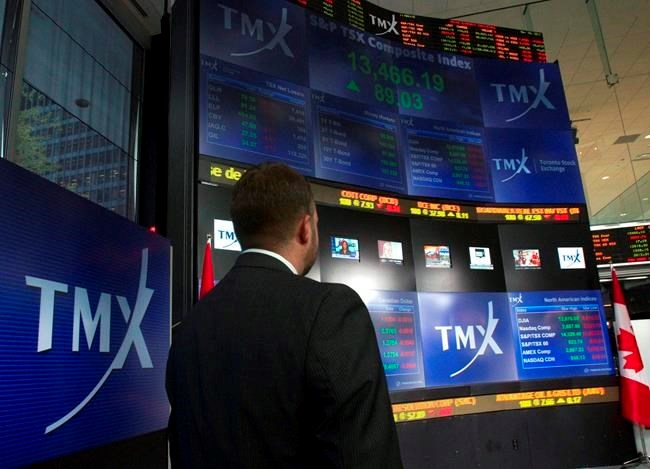TORONTO — North American stock markets sank after U.S. President Donald Trump pulled the plug on fiscal stimulus negotiations until after next month's election.
Markets had been relatively flat earlier in the day, with investors hoping that Trump would assist to move talks forward after returning to the White House from a hospital stay to fight COVID-19.
"I think people viewed that as a positive, but in the end, he called off the stimulus negotiations with the Democrats until after the election. That's a disappointment for the market," said Anish Chopra, managing director with Portfolio Management Corp.
The president's move came days after House Speaker Nancy Pelosi said that a deal was "imminent."
The decision was announced hours after Federal Reserve chairman Jerome Powell urged lawmakers to act, saying that record low interest rates weren't enough to prop up the economy.
“The expansion is still far from complete,” Powell said in a speech to the National Association for Business Economics.
"Too little support would lead to a weak recovery, creating unnecessary hardship for households and businesses. Over time, household insolvencies and business bankruptcies would rise, harming the productive capacity of the economy, and holding back wage growth.”
The shape of an eventual deal will depend on who wins the Nov. 3 election, said Chopra.
"I think there'll be a deal after the election, but depending on who wins, the deal would be different," he said in an interview.
A Democratic sweep of the presidency and both houses of Congress would result in a different package than if Trump and/or the Republican senators retain control, he said.
The S&P/TSX composite index closed down 174.06 points or about one per cent to 16,236.13 after reaching an intraday high of 16,455.84.
In New York, the Dow Jones industrial average was down 375.88 points at 27,772.76. The S&P 500 index was down 47.66 points at 3,360.97, while the Nasdaq composite was down 177.88 points or 1.6 per cent at 11,154.60.
The Canadian dollar traded for 75.35 cents US compared with 75.36 cents US on Monday.
Real estate was up marginally to be the only sector to end the day in positive territory.
Materials and health care fell the most of the 10 losing sectors.
Materials lost 3.8 per cent as gold prices dropped amid a climb in U.S. treasuries. Shares of Centerra Gold Inc. lost 15.3 per cent.
The December gold contract was down US$11.30 at US$1,908.80 an ounce and the December copper contract was flat at US$2.96 a pound.
Bausch Health Companies Inc. lost 5.1 per cent to help pull down health care, which fell 2.1 per cent.
Technology was lower as shares of CGI Group Inc. and Shopify Inc. decrease by three and 1.9 per cent respectively.
Energy dipped slightly after being the strongest sector earlier in the day on an increase in crude oil prices.
The November crude contract was up US$1.45 at US$40.67 per barrel and the November natural gas contract was down 9.5 cents at US$2.52 per mmBTU.
However, Seven Generations Energy Ltd. lost 2.6 per cent while Whitecap Resources Inc. was down 1.7 per cent.
In the short-term, crude prices moved higher on a shutdown of some production in the Gulf of Mexico because of an impending hurricane and in Norway due to a strike.
This report by The Canadian Press was first published Oct. 6, 2020.
Companies in this story: (TSX:VII, TSX:WCP, TSX:SHOP, TSX:GIB.A, TSX:BHC, TSX:CG, TSX:GSPTSE, TSX:CADUSD=X)
Ross Marowits, The Canadian Press




